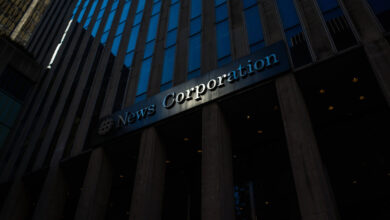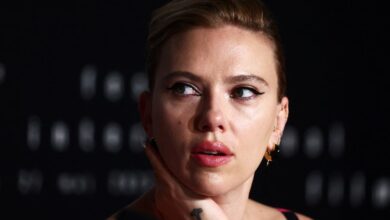AI Lobbying Group Launches Campaign Defending Tech

Chamber of Progress, a tech industry coalition whose members include Amazon, Apple and Meta, is launching a campaign to defend the legality of using copyrighted works to train artificial intelligence systems.
The group says the campaign, called “Generate and Create” and unveiled on Thursday, will aim to highlight “how artists use generative AI to enhance their creative output” and “showcase how AI lowers barriers for producing art” as part of an initiative to “defend the longstanding legal principle of fair use under copyright law.”
Without intervention from Congress, the legality of using copyrighted works in training datasets will be decided by the courts. The question will likely be answered in part on fair use, which provides protection for the use of copyrighted material to make a secondary work as long as it’s “transformative.” It remains among the primary battlegrounds for the mainstream adoption of AI, with some companies putting guardrails on use due to legal ambiguity.
“The principle of fair use is well established over decades of copyright law,” says chief executive Adam Kovacevich, who’s a former Google executive. “All art has responded to what’s come before.”
The campaign’s logo, song and mascot, “Arty Fish,” were created using ChatGPT, Suno and Midjourney — all AI tools — respectively.
Midjourney is currently facing a class action from artists accusing the company of copyright infringement for using billions of images downloaded from the internet to train its AI system. The lawsuit alleged that the tech threatens the market for artists’ work, among other things.
Asked about allegations of the use of copyrighted works by AI companies to teach their tech, Kovacevich says “fair use has always protected creative inspiration.” He adds, “To the extent that human artists have always built art based on what came before, that’s what gen AI services are doing too.”
In comments to the Copyright Office, which has been exploring policy questions surrounding the intersection of intellectual property and AI, Chamber of Progress argued that Section 230 — Big Tech’s favorite legal shield — should be expanded to immunize AI companies from some infringement claims.
“One criterion for determining safe harbor eligibility could involve an evaluation of the size and diversity of the training dataset used for the model,” it stated in its submission. “Further, given the inherently opaque nature of Generative AI models and the unpredictable behavior of human users, Congress may consider legislation that establishes a liability framework that shields Generative AI services from liability when users intentionally submit infringement-driven queries.”
The group added that any new legislation should ensure that the responsibility of identifying specific works used in training datasets belongs to copyright holders.
The agency also drew comments from SAG-AFTRA, the Writers Guild of America and Directors Guild of America, among other major players in the entertainment and media industries.
Chamber of Progress has also weighed in a class action lawsuit from music publishers against Anthropic. It also opposed Tennessee’s passage of legislation specifically targeted at protecting musicians from unauthorized use of AI to mimic their voices without permission. The Ensuring Likeness Voice and Image Security Act, or ELVIS Act, built upon the state’s old right of publicity law by adding an individual’s “voice” to the realm it protects. California has yet to update its statute.
As part of the campaign, Chamber of Progress will hire a director of AI, creativity and copyright policy to lead the initiative.
“Gen AI is a net plus for creativity overall,” Kovacevich says. “It’s expanding access to creative tools for more and more people and bypassing a lot of the traditional gatekeepers.”



